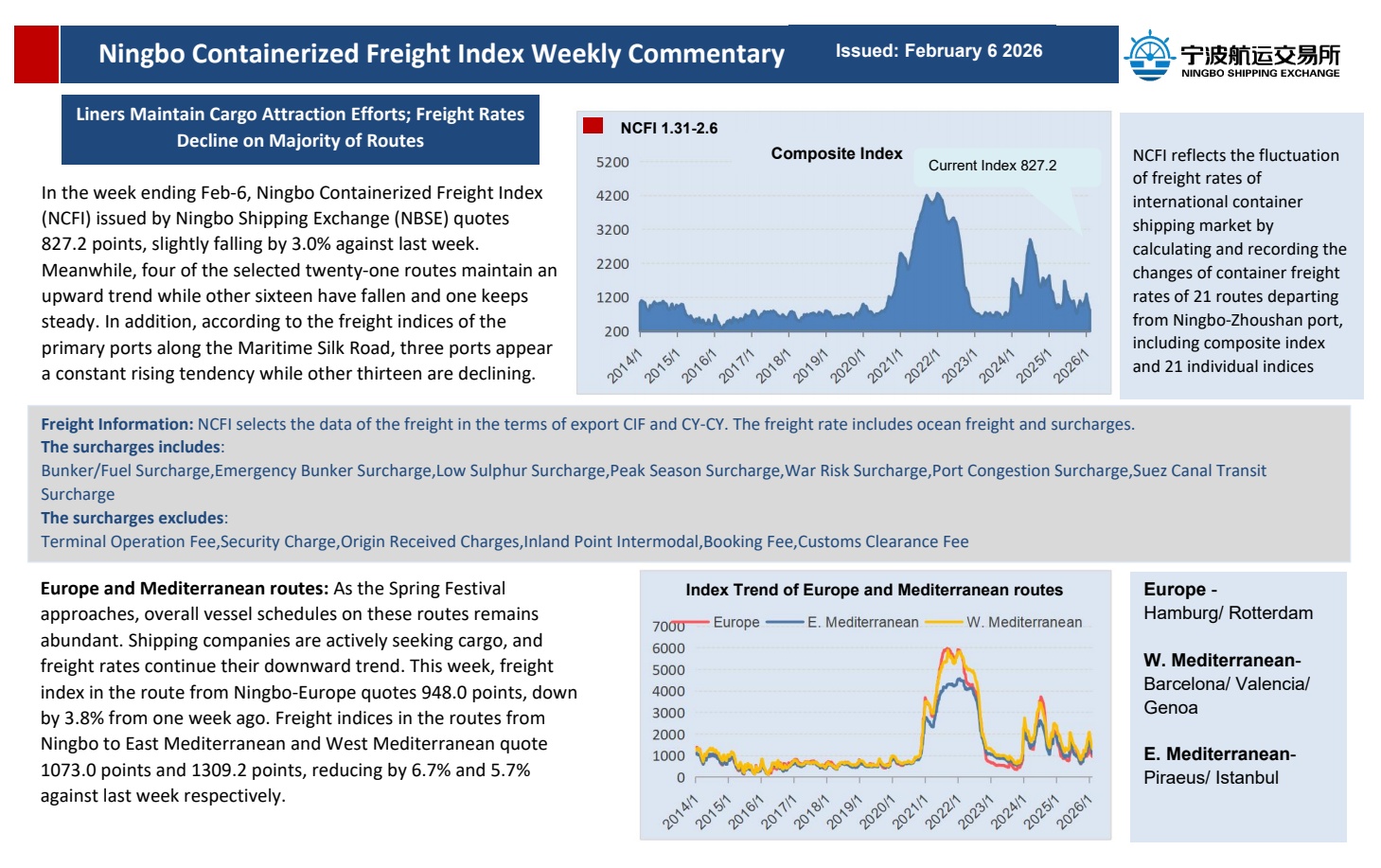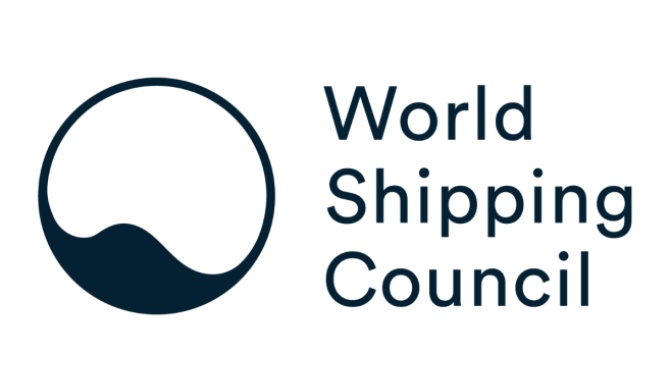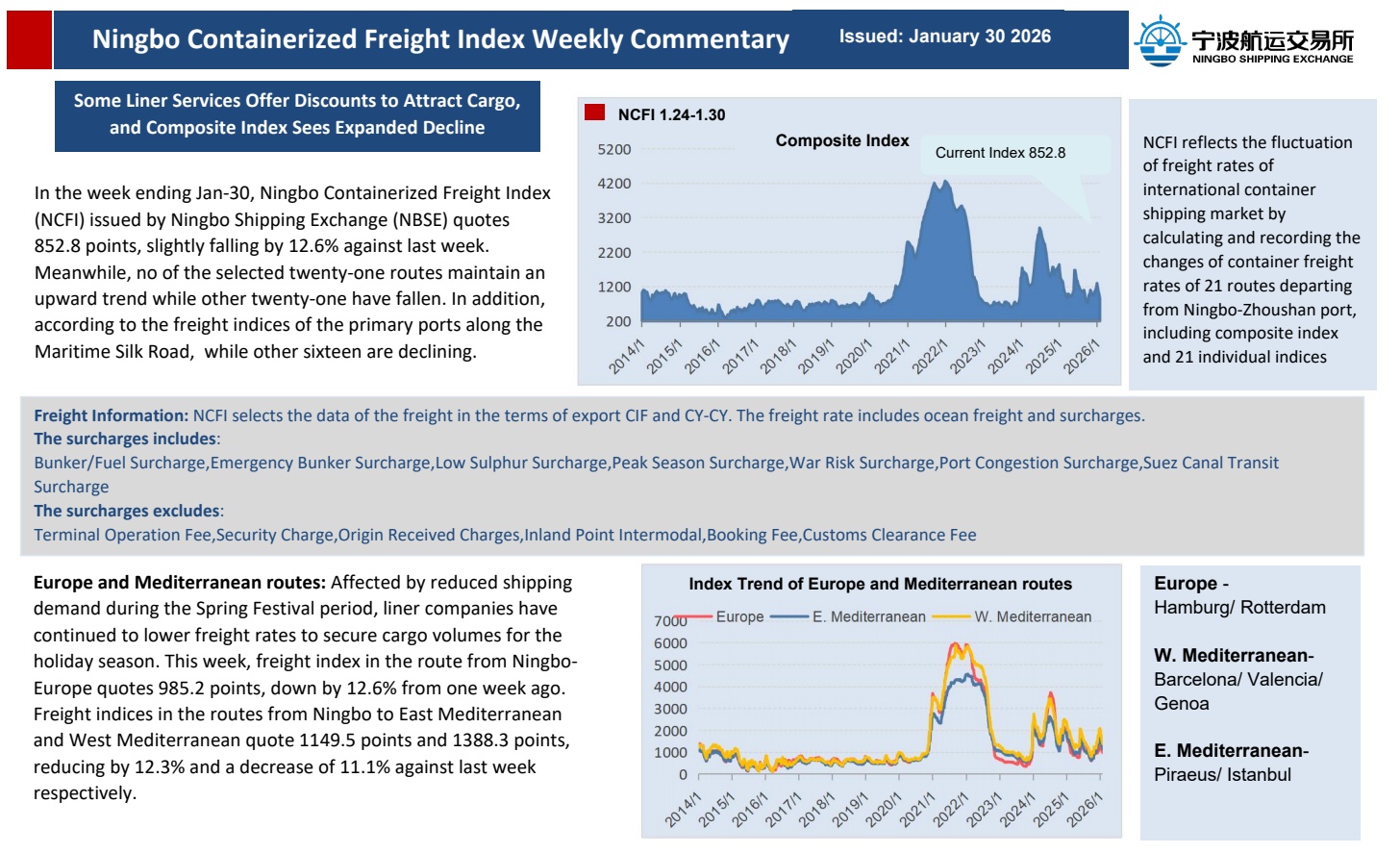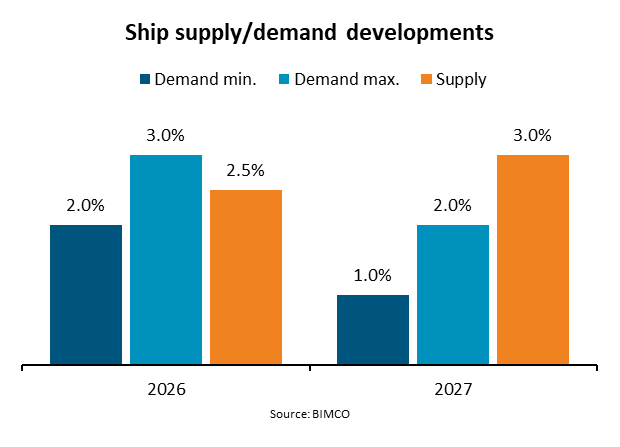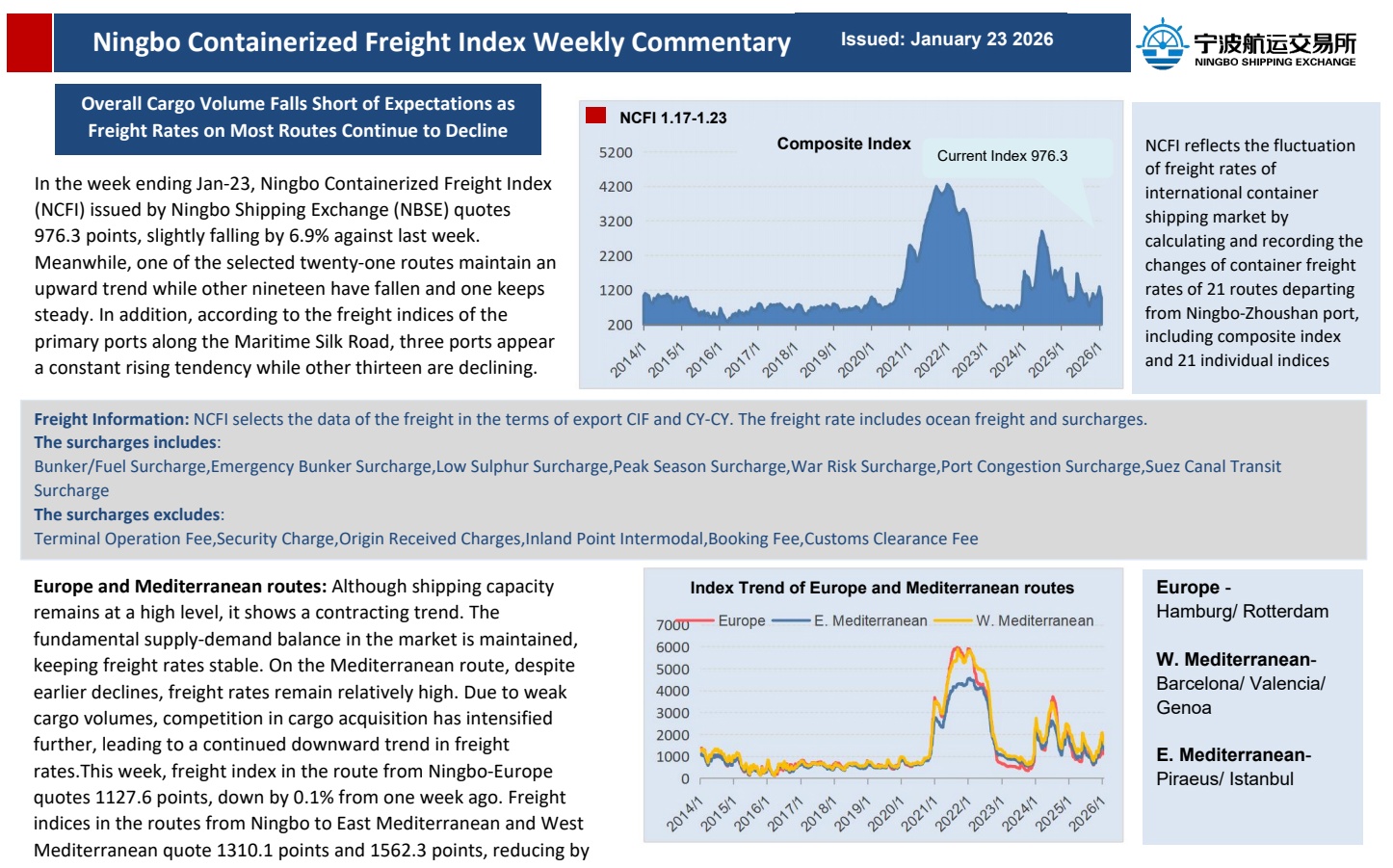Reaching ambitious decarbonization targets is projected to require multiple decarbonization measures. One such measure—sustainable fuels—could help reach those decarbonization targets, according to McKinsey. Sustainable fuels include biofuels such as hydrotreated vegetable oil (HVO), or bioethanol, and synthetic fuels (synfuels) such as ammonia or methanol. McKinsey foresees that the demand for sustainable fuels is expected to triple over the next 20 years. Across scenarios, sustainable fuels are expected to play an increasingly important role in the transportation sectors, including hard-to-abate sectors such as aviation and heavy-duty road transport.
By 2050, the share of sustainable fuels in transportation's energy demand could land between 7 percent and 37 percent, depending on net-zero ambition levels across countries.

Alliances for Decarbonization

Alliances for Decarbonization
Sustainable Shipping Initiative joins Mærsk Mc-Kinney Møller Center: The Sustainable Shipping Initiative (SSI) and Mærsk Mc-Kinney Møller Center for Zero Carbon Shipping (the Center) formalized their collaboration by signing a Knowledge Partnership Agreement. Therefore, the two parties are now committed to a long-term strategic partnership to accelerate the maritime industry's decarbonization efforts. SSI is a multi-stakeholder initiative that brings together organizations across the maritime ecosystem to advance the shipping industry's environmental, social, and socio-economic sustainability. Through this partnership, the two organizations will share knowledge and best practice to accelerate the transition towards zero carbon shipping sustainably, by ensuring that pathways to zero emissions (from alternative fuels to improving energy efficiency) consider sustainability implications beyond CO2. Among other things, SSI and the Center will jointly work on developing standards for life cycle analysis (LCA) of alternative fuels.
Ashurst, GCMD to jointly boost shipping's decarbonization agenda: Singapore-based Global Centre for Maritime Decarbonisation (GCMD) and England-based law firm Ashurst have formalized their partnership by signing a coalition partnership agreement, committing to a long-term collaboration to accelerate the maritime industry's decarbonization efforts. Through this partnership, Ashurst and GCMD will leverage each other's domain expertise and exchange information, to identify opportunities and deliver pilot projects. GCMD was set up on 1 August 2021 as a non-profit organization with an initial investment of S$120 million from the Maritime and Port Authority of Singapore (MPA) and six founding partners, namely BHP, BW Group, Eastern Pacific Shipping, Foundation Det Norske Veritas, Ocean Network Express, and Sembcorp Marine.
PIL joins World Shipping Council to drive sustainability agendas: As a new member, Pacific International Lines will join in WSC's work for a safe, secure, and sustainable industry. A Singapore home-grown container shipping line incorporated in 1967, PIL is currently ranked 12th in the world with a fleet of around 100 container vessels. Its global trade network spans Asia, Africa, Latin America, the Middle East, and Oceania, supported by offices and agencies in over 500 locations in around 90 countries worldwide.
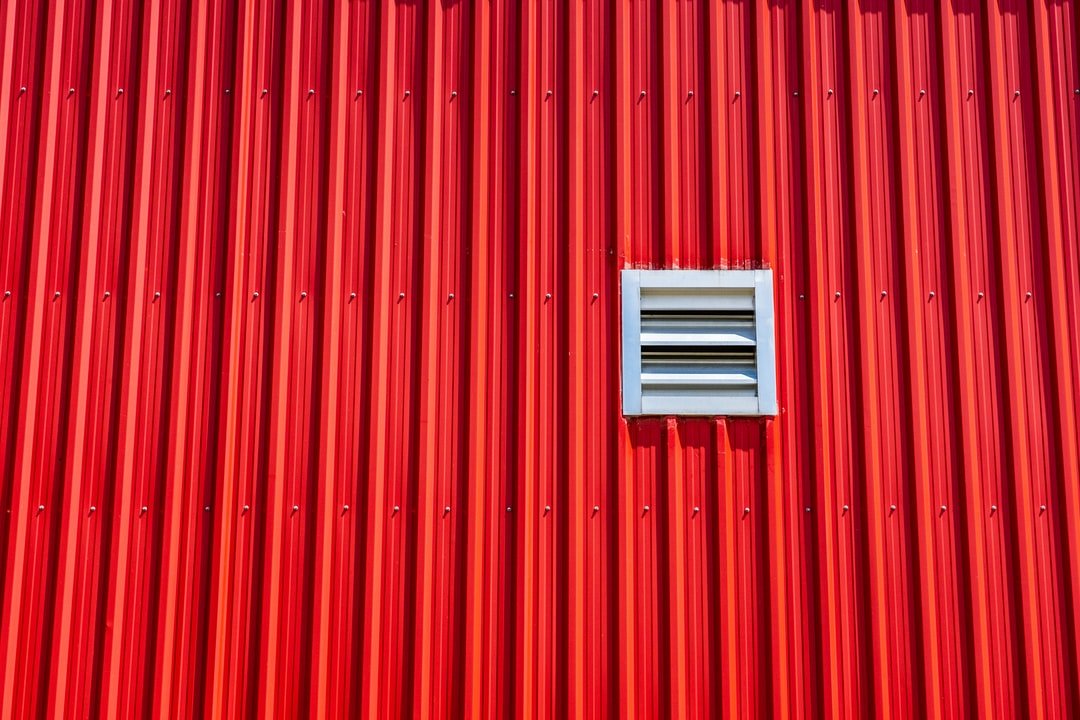

K Line, EGA team up to decarbonize bulk cargo shipping: Japanese shipping company Kawasaki Kisen Kaisha (K Line) has signed a memorandum of understanding (MOU) with the UAE-based aluminum producer Emirates Global Aluminium (EGA) to cooperate on research and pilot projects to decarbonize bulk cargo shipping. The cooperation is expected to focus on the development and implementation of new marine decarbonization technologies suitable for EGA's bulk cargo shipping routes in the eastern Atlantic Ocean, Mediterranean Sea, and the Indian Ocean. Solutions are likely to include kite systems, alternative fuels, and CO2 capture technologies. All of these technologies today have technical and practical challenges to widespread adoption that remain to be overcome, ranging from technology immaturity to lack of support infrastructure, according to the two companies.
Marsoft and ClimeCo collaborate to accelerate decarbonization in shipping: Marsoft Inc., the leading maritime consultancy, and ClimeCo LLC, a leader in the carbon credits market, announce a collaboration to expand the range and value of Marsoft's GreenScreen carbon credit services (GreenScreen), removing financial barriers to the shipping industry's commitment to achieve material CO2 emissions reductions.
Marsoft's GreenScreen services enables Shipowners to issue Gold Standard carbon credits based on the CO2 emissions reduction they create by retrofitting their ships. Sold, these credits help overcome the hurdles that now limit investments in retrofits, reducing risks and increasing the profitability from the reduction in CO2 attributable to the retrofits.
“K” Line Group starts collaborative research on decarbonization with Emirates Global Aluminium: EGA and “K” Line Group agreed to collaborate together through the sharing of research and ideas and utilizing and leveraging the respective party’s knowledge about new marine technology, alternative fuels and other fields potentially growing in the near future, so as to achieve the common target of a Net-Zero Green House Gas emission by 2050. “K” Line defined Marine Transportation Business by Large Vessel, such as Bauxite and Iron Ore as one of the top priority areas for driving growth. They will continuously strive to enhance our corporate value by contributing to the sustainable development of the society and global environment through active collaborations on Decarbonization through the development of partnerships with customers.
bp and thyssenkrupp Steel work together to advance the decarbonization of steel production: bp and thyssenkrupp Steel today announced they have signed a memorandum of understanding (MoU) focused on the development of long-term supply of low carbon hydrogen and renewable power in steel production, helping accelerate the steel industry's wider energy transition. The companies will explore supply options for both blue and green hydrogen, as well as power from wind and solar generation through the use of power purchase agreements.


Industry Actions
NGOs: It's time to invest shipping lines' billions into climate action: Two NGOs have demanded from the top ten container giants to invest a minimum of $95 billion of this year's mega-profits in kick-starting their own upgrade to zero-emission propulsion. The demand has been announced in a joint statement issued by Pacific Environment and Seas at Risk on 8 July, ahead of Amazon Prime Day on 12 and 13 July. According to NGOs, Amazon Prime Day is promising once again to increase online retail sales and with it the associated pollution from transporting millions of tons of goods on fossil-fuelled mega-ships across the world's oceans.
Unifeeder goes all-in on ZeroNorth optimization: On top of ZeroNorth's vessel, voyage, and emissions optimizations, the agreement includes bunker optimization from ClearLynx, a company ZeroNorth acquired earlier this year. The technology will be rolled out to 90 Unifeeder vessels, offering decision-making support to staff at sea and on shore; weather routing helps to improve voyage planning and along with bunker, vessel, and emissions optimization aim to improve fuel efficiency, cut emissions and improve earnings.
Euronav Frontline tie-up to capitalize on sustainable shipping opportunities: Norwegian tanker owner and operator Frontline and its Belgium-based counterpart Euronav have entered into a definitive agreement to create a global independent tanker operator. As explained, the combined group will now have “the management, capabilities, resources, and scale to successfully capitalize on the opportunities presented by the new era in the sustainable shipping industry“. Both entities have set ambitious decarbonization targets that will be further enhanced through this combination. In view of rapid technological changes, including digitalization and new “low carbon fuels” adoption, the combined group will be able to mobilize more resources and achieve meaningful scale to meet these challenges and opportunities from the energy transition.
Maersk withdraws from board membership at ICS, citing climate goals: Maersk - the number-two ocean carrier and one of the world's largest shipowning groups - said in a statement that the decision came after a climate-driven review of its memberships. By contrast, Maersk has already committed to a net-zero-by-2040 target, one decade ahead of the Paris Climate Agreement goal for non-shipping sectors. Its policy prescription for the rest of the industry is just as ambitious: its CEO has called for a $450-per-tonne bunker levy to close the price gap between VLSFO and future fuels, and it has founded a research institute to help find practical solutions for decarbonization. The gap between Maersk's goals and ICS' position appears to have drawn notice at Maersk's headquarters. The Danish shipowning giant has confirmed that is withdrawing its board membership at ICS and moving ahead with its own plans.


Technology
MOL Drybulk, Drax target reduced biomass shipping emissions with wind power tech: Japanese shipping company MOL Drybulk and the UK-based renewable energy company Drax Group have formed a partnership to reduce emissions and fuel costs associated with shipping biomass by deploying wind power technology on vessels. As part of their partnership, the companies plan to facilitate the development of wind-powered vessels to transport bulk cargoes of Drax's wood pellets to its customers in Japan. The newly built vessels will be fitted with MOL's Wind Challenger hard sail technology, with the first ship expected to be on the water as soon as 2025, the companies said. According to Drax, the initiative is part of its plans to further reduce supply chain emissions and meet the ambition to be a carbon-negative company by 2030, by using bioenergy with carbon capture and storage (BECCS).
Next Generation of Vessels
NYK Line and IHI Power Systems obtained Approval in Principle (AiP) for an ammonia-fuelled tugboat design currently under development: The joint research project aims to create the world's first tugboat using ammonia as fuel and is currently expected for delivery and demonstration in the port of Yokohama in the financial year 2024. According to a timeline released by NYK Line, IHI Power System is on the hook for developing and fabricating the four-stroke engine while NYK Line is handling hull design, construction, sea trials, regulatory clearance, operation, and demonstration and commercialization of the vessel.


Berge Bulk chooses Anemoi sails for large bulkers: Singapore-based Berge Bulk is to install Anemoi Rotor Sails on two large bulk carriers. The 388,000 dwt Valemax, Berge Neblina, built in 2012, and the five-year-old Newcastlemax Berge Mulhacen, 210,000 dwt, will each have four ‘folding’ sails to reduce fuel consumption. The Berge Neblina was made ‘wind-ready’ during a scheduled drydocking earlier this year and will have the first installations consisting of four sails mounted on the port side of the deck that can be lowered from vertical during cargo handling or air draught restrictions.
GOGL orders three more dual-fuel Kamsarmaxes to future-proof its fleet: Bermuda-registered, Norway-based dry bulk shipping company Golden Ocean Group Limited (GOGL) has entered into agreements for the construction of three 85,000 dwt ECO-type dual-fuel vessels. The Kamsarmax bulkers will be equipped with an efficient propulsion system, according to the company. The newly ordered vessels are planned to be delivered to the company in the third quarter of 2024 and the first quarter of 2025.
KR approves HHI's LNG-fueled large LCO2 carrier design: As informed, KR and HHI conducted a joint development project (JDP) to develop the vessel overcoming technical challenges in designing LCO2 carriers, such as enlarging the size of the C-Type cargo tank to meet the market need to transfer a larger amount of CO2 to storage facilities. Under the project, HHI carried out the basic and structural design of the 40,000 cbm LCO2 carrier, while KR verified the safety and conformity of the design by reviewing the class rules and international conventions. The resulting concept design has now been awarded approval in principle by the classification society.


Cruise Sector / Ferries
C-Job to design the first fully electric Ro-Pax ferry in Greece: Greek ferry operator Saronic Ferries has selected the Netherlands-based ship design and engineering company C-Job Naval Architects to develop the design of the first fully electric roll-on/roll-off passenger (Ro-Pax) ferry in Greece. As disclosed, C-Job has delivered an initial design to Saronic Ferries following an extensive sustainable fuel feasibility study. According to Saronic Ferries, the zero-emission passenger Ro-Pax ferry has a capacity of 800 passengers and will feature a variety of sustainable aspects, including fully electric propulsion, and will recharge in the port of Piraeus. The design will include energy-saving solutions and features offering comfort at no expense to the environment, the partners claim. The vessel is expected to join the fleet in 2026, sailing between Piraeus and the islands of Aegina and Agistri, provided the infrastructure required in the port of Piraeus is in place.
World's first electric fast ferry is ready to enter service: The world's first fully electric and zero-emission fast ferry classed as a high-speed craft, recently completed construction and is being delivered to its new homeport in Stavanger, Norway. After final trials, the vessel, MS Medstraum, is scheduled to begin regular commuter service in Norway as a further demonstration of the future electric ferries. According to the shipyard, modularisation helped to cut both production costs and engineering costs and will contribute to making electric-powered high-speed vessels competitive in terms of both cost and the environment. The vessel was built using a unique modular manufacturing method at the Norwegian shipyard, Fjellstrand.


Fuels
European and Japanese researchers hunt for cheaper green methanol: Ten European and Japanese organizations have worked on the Laurelin project for a year with the aim of reducing the energy and cost requirements of hydrogenating carbon dioxide (CO2) to create methanol. Current technology for creating green methanol uses large amounts of electricity to turn carbon dioxide and hydrogen into methanol and water, using a catalyst to speed up the process. By using renewable energy to power the hydrogenation process, carbon intensity is greatly reduced, and the product is known as green methanol. Green methanol is one of the frontrunner technologies among the future fuels of the maritime industry.
Core Power unveils a clean fuel solution for the North Atlantic green shipping corridor: Core Power, a UK-based development company specializing in scalable atomic power technology for ocean transport and heavy industry, has presented a clean fuel solution for the planned Atlantic green shipping corridor. The company has shown how ‘green fuel for shipping can be produced reliably at low cost using a floating nuclear power plant design combined with an 'ammonia refinery' at either end of green corridors being proposed in the Clydebank declaration. The Belgian Port of Antwerp-Bruges and the Canadian Port of Montreal is currently working to create the first green shipping corridor in the North Atlantic.
Amid high fossil fuel prices, renewable power saves around $55 bln, says IRENA: The International Renewable Energy Agency (IRENA), an intergovernmental organization aiming to promote renewable energy as the key to a sustainable future, has released its report about the cost of renewable power generation in 2021, detailing that renewable are crucial to breaking away from volatile fossil fuel prices and tackling the double whammy of energy security and climate change crises. IRENA revealed that renewable power remains cost-competitive amid the current fossil fuel crisis and its report indicates that almost two-thirds of renewable power added in 2021 had lower costs than the cheapest coal-fired options in G20 countries.


Shipping Finance
Fincantieri inks €500M sustainability-linked loan to build cruise ships: Italian shipbuilder Fincantieri has signed a sustainability-linked revolving credit facility with compatriot bank Intesa Sanpaolo for a maximum amount of €500 million (around $505 million). According to Fincantieri, the three-year financing is aimed at covering the financial requirements of the construction of cruise ships. At the end of 2021, the Italian company signed the first sustainability-linked construction loan with Intesa Sanpaolo and Cassa Depositi e Prestiti for a maximum amount of €300 million (around $340 million), intended to cover the financial requirements of the construction of a cruise ship with delivery expected in 2023.
Government
US Congress pushes for greener shipping: US Congressman Alan Lowenthal, representing the Port of Long Beach, and Congresswoman Nanette Barragán, representing the Port of Los Angeles, introduced the Clean Shipping Act, a legislation that aims to zero pollution from all ocean shipping companies in the United States. The bill has the goal to clean up the shipping industry, which alone produces more emissions than all but five individual countries in the world. The legislation will also protect the health of coastal communities, address environmental injustice and provide solutions to the climate crisis.
Ports
Port of Antwerp-Bruges joining H2Global in energy transition move: Belgian Port of Antwerp-Bruges becomes a founding member of the German green hydrogen foundation H2Global which is expected to play a key role in the energy transition. Officially merged in April 2022, Port of Antwerp-Bruges wants to take a key role in the production, distribution, and use of green hydrogen. As Europe’s largest export port, it is now participating in the German H2Global Foundation with an endowment sum of €100,000 ($100,095). The foundation has set itself the goal of making green hydrogen acceptable as an energy substitute in Europe. Therefore, it is advancing the energy transition and independence from Russian gas supplies.

Source: Maria Bertzeletou, Breakwave Advisors

Source: Maria Bertzeletou, Breakwave Advisors
The opinions expressed herein are the author's and not necessarily those of The Xinde Marine News.
Please Contact Us at:


